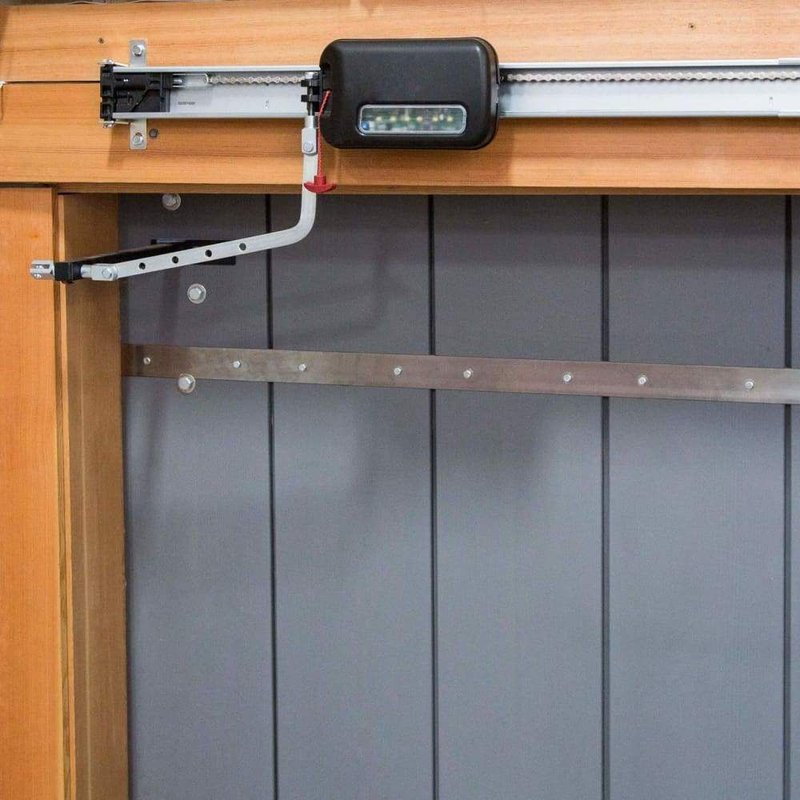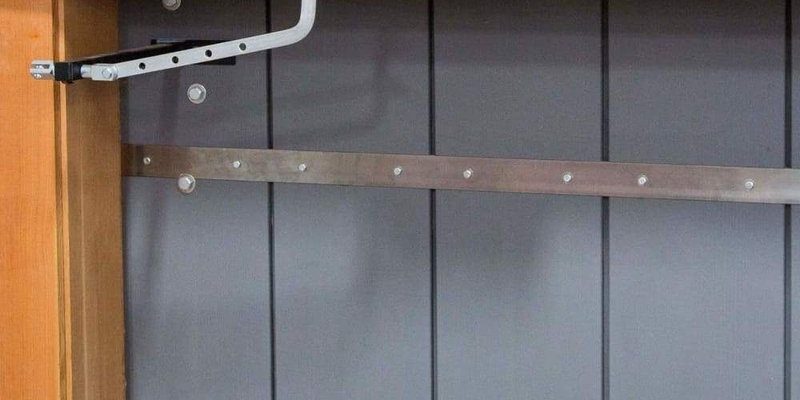
Imagine a trusty friend who always remembers to check that everything is locked up when you forget. These smart openers do just that—they automatically close your garage door after a set amount of time, giving you peace of mind. Brands like Chamberlain and LiftMaster have stepped up with this handy technology, making life a little easier and a lot safer.
In this article, we’ll explore the convenience and safety aspects of garage door openers equipped with the auto-close feature, diving into how they work, their benefits, and what to look for when choosing one.
Understanding Auto-Close Features
The auto-close feature is a game-changer. Simply put, it ensures your garage door closes automatically if you forget to do it. This feature can typically be adjusted to close the door after a specific duration—anywhere from a few seconds to several minutes, depending on the model. You might be wondering, “Why would I need this?” Well, think of it as a safety net. It reduces the risk of leaving your garage open, making your home less vulnerable to theft or unwanted animals.
Most modern garage door openers come with this feature. They rely on a timer that you can set based on your routine. You can also use sensors to open and close the door, which adds another layer of function. So, if you’re stepping outside to grab the mail, your door will stay open just long enough for you to get back inside safely.
Benefits of Auto-Close Garage Door Openers
Here’s the thing: having an auto-close garage door opener isn’t just about convenience; it’s about enhancing security and safety for your home. Here are a few key benefits:
- Enhanced Security: An automatically closing door decreases the chances of someone breaking in.
- Animal Protection: It keeps pets or small animals from wandering out or getting in.
- Convenience: You won’t have to stress about whether you remembered to shut the door.
- Energy Efficiency: Keeping the garage closed helps maintain the temperature inside, saving on energy costs.
Consider this: if you live in an area with high foot traffic, being able to rely on the garage door to close automatically can help keep your home safe from prying eyes. Plus, it eliminates that nagging feeling that creeps up on you when you’re already settled in for the night.
How Does the Auto-Close Feature Work?
The auto-close feature operates through simple mechanics—think of it like your phone’s alarm. When you set the timer, the opener remembers to close your door after the specified time.
Most modern systems utilize two components: a control panel and a sensor. The control panel allows you to customize the timing settings, while the sensor tracks when the door’s open or closed. If there’s any obstruction in the way, like a vehicle or a person, the sensor will detect it and stop the door from closing, ensuring safety.
One of the more advanced features might include syncing the auto-close timer with your smartphone app, so adjustments can be made easily on-the-go. This integration adds a layer of sophistication and control over your home security system.
Choosing the Right Garage Door Opener
Shopping for garage door openers with an auto-close feature can feel overwhelming, but focusing on a few key elements can simplify your decision:
- Brand Reliability: Brands like Chamberlain, LiftMaster, and Genie are well-respected and offer models with this feature.
- Compatibility: Ensure the opener is compatible with your type of garage door (sectional, roller, etc.).
- Smart Features: Look for models that allow smartphone connectivity if you fancy managing it from your phone.
- Quiet Operation: If your garage is attached to your home, quieter models can make a huge difference.
For instance, if you frequently arrive home with your hands full, a garage door opener that integrates with your smart home devices can enhance your experience, as you can control it with just a voice command.
Installation Tips for Auto-Close Garage Door Openers
Installing a garage door opener with an auto-close feature isn’t a Herculean task, but it does require some basic understanding of tools and wiring. If you’re a DIY enthusiast, here are some steps to follow:
1. Gather Tools: You’ll typically need a drill, level, and a tape measure.
2. Remove Old Opener: Disconnect the power, unfasten the old opener, and take it down.
3. Mount the New Opener: Follow the manufacturer’s instructions to mount the new motor unit.
4. Connect the Wiring: Ensure to connect the wires for the control panel properly, following the color-coding.
5. Install the Sensors: These generally go on the garage floor near the door edges.
6. Test the System: After installation, plug in to power, and test both the manual and auto-close operations.
If you head into this project and feel uncertain at any point, don’t hesitate to reach out to a professional. It’s always better to be safe than sorry when handling anything electrical.
Potential Challenges with Auto-Close Features
While the auto-close feature is incredibly helpful, it’s important to be aware of potential challenges:
- False Triggers: Sometimes, sensors can misinterpret an obstruction, causing the door to stay open longer than intended.
- Power Outages: If your garage door opener isn’t battery-operated, a power cut could leave you manually raising and lowering the door.
- Regular Maintenance: Like any tech, these systems need upkeep to ensure they function properly. Regularly check the sensors and track for any possible obstructions.
If these challenges crop up, troubleshooting usually involves checking the sensor alignment or ensuring any nearby objects aren’t interfering. Many brands have support hotlines ready to help you out.
Comparing Universal vs. Brand-Specific Remotes
Using a universal remote can be a smart alternative if you’re looking for flexibility. However, there are differences between these and brand-specific remotes:
– Universal Remotes: These can be programmed to work with many different brands, making them versatile. They’re easy to find but might not support every feature, including auto-close settings.
– Brand-Specific Remotes: These are designed to work seamlessly with your garage door opener. They typically offer complete functionality, including features like quiet operation and the auto-close function.
If you go the universal route, check that it supports auto-close features. Otherwise, you might want to stick with the remote that came with your opener for peace of mind.
Final Thoughts on Garage Door Openers With Auto-Close Feature
Incorporating a garage door opener with an auto-close feature isn’t just a matter of convenience—it’s a step towards better security and peace of mind. By knowing how they work and what to look for in your selections, you can find the perfect opener that complements your lifestyle.
Whether you’re coming home from work, loading kids into the car, or just grabbing a quick errand, you can trust that your garage door will close automatically. That extra peace of mind can make a significant difference in how you feel about home security. So, get that smart opener installed and enjoy the convenience while knowing you’re keeping your home safe!
